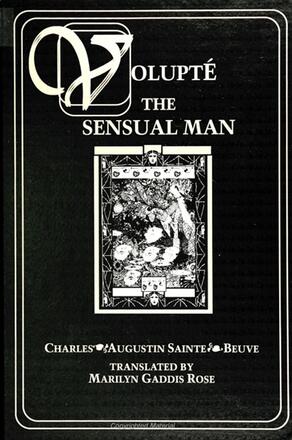
Volupte
The Sensual Man
Alternative formats available from:
This is the first English translation of a pre-Freudian psychological novel. The narrator victimizes women while feeling victimized by his own sensuality.
Description
Charles-Augustin Sainte-Beuve (1804-69), who ruled French letters in the nineteenth century, established biographical analysis as a critical method. His own fictionalized biography was Volupte (1834), translated here for the first time. It is at once a roman a clef, a historical novel, and a pre-Freudian psychological novel. Disguising his relationship with Victor Hugo's wife Adele by setting the novel in the 1790s during the Breton Chouan uprising against Napoleon, he weaves together fictitious and historical personages. His analysis of the narrator's inner psychological state and the love-hate language games of courtship is framed by parallel intrigues in politics and society.
Marilyn Gaddis Rose is Distinguished Service Professor of Comparative Literature and Director of the Center for Research in Translation at State University of New York at Binghamton. She is founding editor of the scholarly Series of the American Translators Association and recipient of its Alexander Gode medal in 1988. Editor of SUNY Press' series Women Writers in Translation, Rose has published other translations of nineteenth century French literature including Axel and Eve of the Future Eden by Villiers de l'Isle Adam and Lui. A View of Him by Louise Colet.
Reviews
"As a fictional narration in the first person, Volupte recreated the mental conflicts of a youth beset by internal and external forces, with sympathy and authenticity, offering a variety of moods, within a fascinating time and place (post-French Revolution), and a flock of historically interesting characters, who partake in the 'hero's' development.
"The translation, while completely faithful to the original, reads smoothly, elegantly; it captures the style and flavor of its time yet does not sound old-fashioned. It makes available to English readers a unique, little-known novel by an otherwise well-known critic of nineteenth century France." --Jurgrau, Empire State College